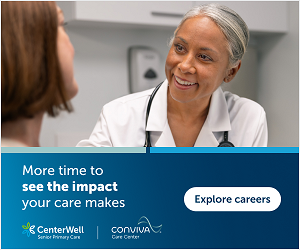![]() She had come to see me in consultation. A professor at a local university, she was well until four years earlier when she developed abdominal bloating and pain — telltale signs of ovarian cancer. Surgery followed, then adjuvant chemotherapy with intraperitoneal treatments. (“Terrible regimen,” she said.) She was fine for two years, until the bloating recurred heralding recurrent disease. Surgery followed and she sought out a second opinion about more therapy. “My oncologist recommended more of the same — carboplatin and paclitaxel. But it didn’t cure me the last time, so it doesn’t make sense to me that this would be the best treatment for me now. I wanted to know what else was out there,” she told me.
She had come to see me in consultation. A professor at a local university, she was well until four years earlier when she developed abdominal bloating and pain — telltale signs of ovarian cancer. Surgery followed, then adjuvant chemotherapy with intraperitoneal treatments. (“Terrible regimen,” she said.) She was fine for two years, until the bloating recurred heralding recurrent disease. Surgery followed and she sought out a second opinion about more therapy. “My oncologist recommended more of the same — carboplatin and paclitaxel. But it didn’t cure me the last time, so it doesn’t make sense to me that this would be the best treatment for me now. I wanted to know what else was out there,” she told me.
We talked about well-established concepts in the approach to recurrent ovarian cancer, such as platinum sensitivity, and how that predicts success to retreatment with carboplatin. I explained why I thought her doctors were right in their suggested treatments, and reviewed other platinum-based combinations she could receive. We also reviewed clinical trials and novel treatments, such as bevacizumab. She seemed interested in bevacizumab, so we reviewed the data from completed trials and the trials still ongoing. “Well, what do you think?” she asked. “Would you give it to me?”
“Well,” I thought. “We could consider it.” She stared at me afterward, mouth agape. I still remember her face as she furrowed her eyebrows and looked at me right in the eye.
“What the hell does that mean?”
Consider. It’s a word I’ve used in many instances and with many patients. Yet, I never really stopped to think about just how little that says. Consider is defined as the process of “thinking about something carefully, particularly before making a decision.” Seems reasonable enough. However, it dawned on me with this patient that she did not want more to “consider,” she wanted a plan.
As oncologists, we strive to make treatment plans, always keeping our patients in the center. We want our recommendations informed by their goals and preferences. However, in our outline of options, it seems to me that we do a disservice to our patients by being unclear.
I was fortunate to have worked at UpToDate as a full-time deputy editor in oncology. They taught me many things about reading the literature and the importance of clarity. At UpToDate, “considering” something was not done, because there was no action associated with consideration. I was asked to push my authors towards precision in our content: Would you suggest this treatment? Is the data so strong that you would go so far as recommend it? Indeed, it was one of the things about the job I enjoyed — asking my authors to actually take a stand, and more often than not, they did.
I realize that sometimes the data is not so strong, so that even saying I’d “suggest” treatment seems too laden with certainty. But at the end of the day, we are not talking to hypothetical patients. We are talking to women and men with cancer, and they are looking to us for advice — clear and concise so that they can make their choices with us. I know many of them would love to sit by a fire and consider many things, like what they will have for dinner, where to go for vacation and what their children will look like as adults. I am certain too that, when it comes to treatment, they would rather not be asked to “consider” therapeutic choices. And I think, ultimately, we owe them that kind of clarity.
For my own patient, I did my best to respond to her. “I think bevacizumab is really promising. I am just not sure the benefits warrant the side effects. But, if you want to try it, I think that’s a reasonable thing to do.”
“Okay then,” she responded. “Let’s do it.”
Don S. Dizon is an oncologist who blogs at ASCO Connection.
Image credit: Shutterstock.com

























![Why are medical students turning away from primary care? [PODCAST]](https://kevinmd.com/wp-content/uploads/Design-3-190x100.jpg)



